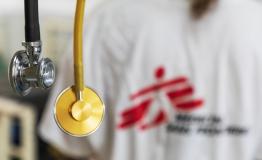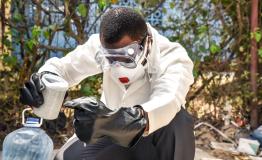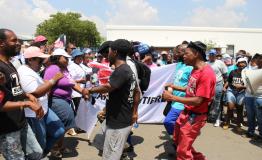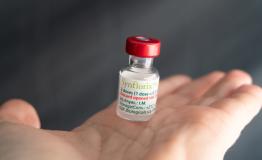

Armenia
During the late 1990s and early 2000s, we provided medical and therapeutic care to children with a physical and/or mental disability in a special education complex in Yerevan; this project was closed in 2004.
More recently, we focused on implementing new regimens for patients with multidrug-resistant tuberculosis (MDR-TB) in Armenia, which has one of the highest rates of the disease in the world. We had been working with the national tuberculosis programme in Yerevan, the capital, since 2005, before implementing our programme to treat drug-resistant TB in 2015. This programme, which also included medical research, saw patients treated with bedaquiline and delamanid, two of the newest drugs to treat TB; Armenia was one of the first countries in the world to authorise their use.
During our three decades in the country, we worked in Nagorno-Karabakh, a self-proclaimed republic internationally recognised as belonging to Azerbaijan, but which is home to many ethnic Armenians. Activities there included the provision of medical equipment and support during the Nagorno-Karabakh war (1992–1997), and a TB project (1997-2003).
We handed over our remaining TB activities to the national health authorities and closed our projects in 2019.
OUR ACTIVITIES IN 2021
13
13
€0.6 M
0.6M
1988
1988
As uncertainty loomed over the future of Nagorno-Karabakh, Médecins Sans Frontières started to offer mental health support to people experiencing chronic stress and anxiety.
In 2021, Armenia/Azerbaijan experienced spikes in tension as fighting broke out in border regions. In response, our team began to support the Nagorno-Karabakh/Artsakh health authorities to improve the quality of psychological care for people affected by violence and displacement in Martuni, Martakert and Stepanakert. We conducted psychological consultations and worked to improve detection and diagnosis of mental health problems. To ensure that patients in remote areas could access care, we also assisted with travel costs.
In Martuni hospital, we contracted a local company to build a waste management area and improve storage conditions for the medicines provided by the Nagorno-Karabakh/Artsakh Ministry of Health.


MSF: Governments must demand pharma make all COVID-19 vaccine licensing deals public

MSF challenges COVID-19 myths with new quiz challenge app

MSF and TB activists disrupt opening of TB conference to protest drug corporations keeping life-saving medicines from people

Tips to De-Stress
